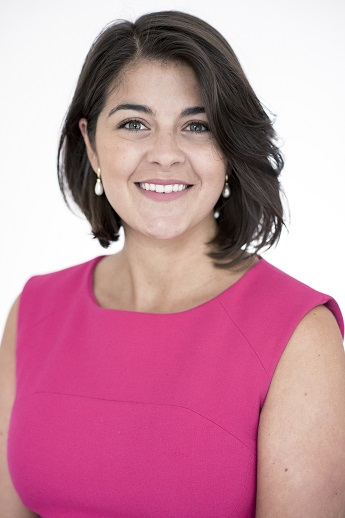
Banking 101 –
Are Alternative Investments Right for Me?
Find out whether the alternative investment market is right for you with our short guide to investing in private equity, commodities or collectables. Discover the pros and cons of alternative investments.

Traditionally, investors build a portfolio with stocks, bonds and cash; you may have heard of the '60:40' portfolio, which was historically the standard medium-risk approach, 60% stocks, 40% bonds. However, in today's environment, investors are increasingly interested in allocating to alternative investments as a means of adding further diversification to their portfolios. This article is intended to shed some light on the basic questions an investor may have when getting started; what are alternative investments, and what are the key risks that alternative investments carry.
What are alternative investments?
‘Alternative investments’ is an umbrella term for anything outside the traditional investment categories of stocks, bonds, cash or real estate. As you would imagine, the alternative investment market is broad-reaching, and there are too many different alternative investments to list the full range here. However, a few examples include:
- Private equity: This broad category includes venture capital, growth capital and buyouts. It works on the principle of capital investment into private companies not listed on a public exchange.
- Hedge Funds: This strategy is solely focused on higher risk, higher return investments, with managers using various skills to execute their strategies, such as quantitative strategies or long-short equity. Hedge funds will often use derivatives or other complex instruments as part of their strategy.
- Commodities: These tangible assets include energy such as oil and natural gas, metals such as copper, nickel and gold and agricultural goods such as wheat, corn or even livestock. The price (or value) of these assets is often volatile as the supply and demand shifts.
- Collectables: From comic books and rare wine to guitars, books, art and other collectables, investments of passion can be rewarding and interesting, but the value of these assets is often difficult to accurately assess and is not guaranteed to appreciate over time.

What risks should I consider?
As a result of the nuanced nature of many alternative investments, several risks should be considered that may not apply to more traditional assets such as stocks or bonds.
- Many alternative investments are not required to be authorised or licenced by the Financial Conduct Authority (FCA). This means that the asset managers or providers may not be adhering to the same governance standards with regard to risk controls, reporting and transparency.
- For those unregulated investment products, you will waive your rights to protection as a retail investor from the Financial Services Compensation Scheme for these assets if you choose to invest.
- The value of alternative investment assets is rarely assessed independently. It relies mainly on information from investment providers, as opposed to bonds or shares, for example, which are traded in a transparent market. This lack of transparency can make it difficult to accurately understand how the asset is performing and achieving your investment objectives.
- For tangible assets, such as collectable items or precious metals, there is an additional cost of investment to you which would be the safekeeping or maintenance of that asset. For example, if you own a classic car, you need to keep it in working order and in good condition to preserve its value. In addition, there is no guarantee that the asset will appreciate.
- Often alternative investments can be illiquid or have minimum holding periods, such as a 12-month notice requirement if you wish to withdraw from an investment or a minimum investment period of 3 years. This can mean that you are tied into the investment, and you may not be able to access the capital if you need it.
- Lastly, the performance of alternative assets can often be volatile and unpredictable. As a result, alternatives are often seen as higher risk than traditional asset investments.
Despite the higher risk of harm that alternative investment pose, investors often see these as a successful diversification strategy. However, because of the more nuanced and often complex nature of the alternative investment market, it is essential to ensure that all risks have been assessed appropriately, not just the potential reward. It is for this reason that many investors choose to delegate this responsibility to a professional investment manager.
Looking to find out more about building an investment portfolio to meet your objectives? Speak to us about ways we can help.
Author -

Gabriella Macari
Senior Investment Manager
Gabriella Macari, Senior Investment Manager at Arbuthnot Latham, joined the bank in 2019 and has more than 11 years of experience in the investment and wealth management industry. Gabriella played a pivotal role in the development and launch of our Sustainable Portfolio Service in 2021 and led our research coverage of the commercial property market from 2020 to 2022.
She holds the title of Chartered Wealth Manager, Investment Advice Diploma and the Private Client Investment Advice and Management qualification. She holds a BSc (Hons) in Economics from the University of Bath.
Outside of work, Gabriella enjoys cooking, reading, and finding opportunities to practice her Italian. She is also a keen runner and a lifelong Formula 1 fan.
DISCLAIMER
This communication should be considered a marketing communication. It has not been prepared in accordance with legal requirements designed to promote the independence of investment research. It is for information purposes only and does not constitute advice, a solicitation, recommendation or an offer to buy or sell any security or other investment or banking product or service. You should seek professional advice before making any investment decision. The value of investments, and the income from them can fall as well as rise, and may be affected by exchange rate fluctuations. Investors could get back less than they invest. Past performance is not a reliable indicator of future results. The tax treatment of investments depends upon individual circumstances and may be subject to change.
The contents of this communication are based on opinions or conditions as at the date of writing and may change without notice. To the extent permitted by law or regulation, no warranty of accuracy or completeness of this information is given and no liability is accepted for its use or reliance on it.